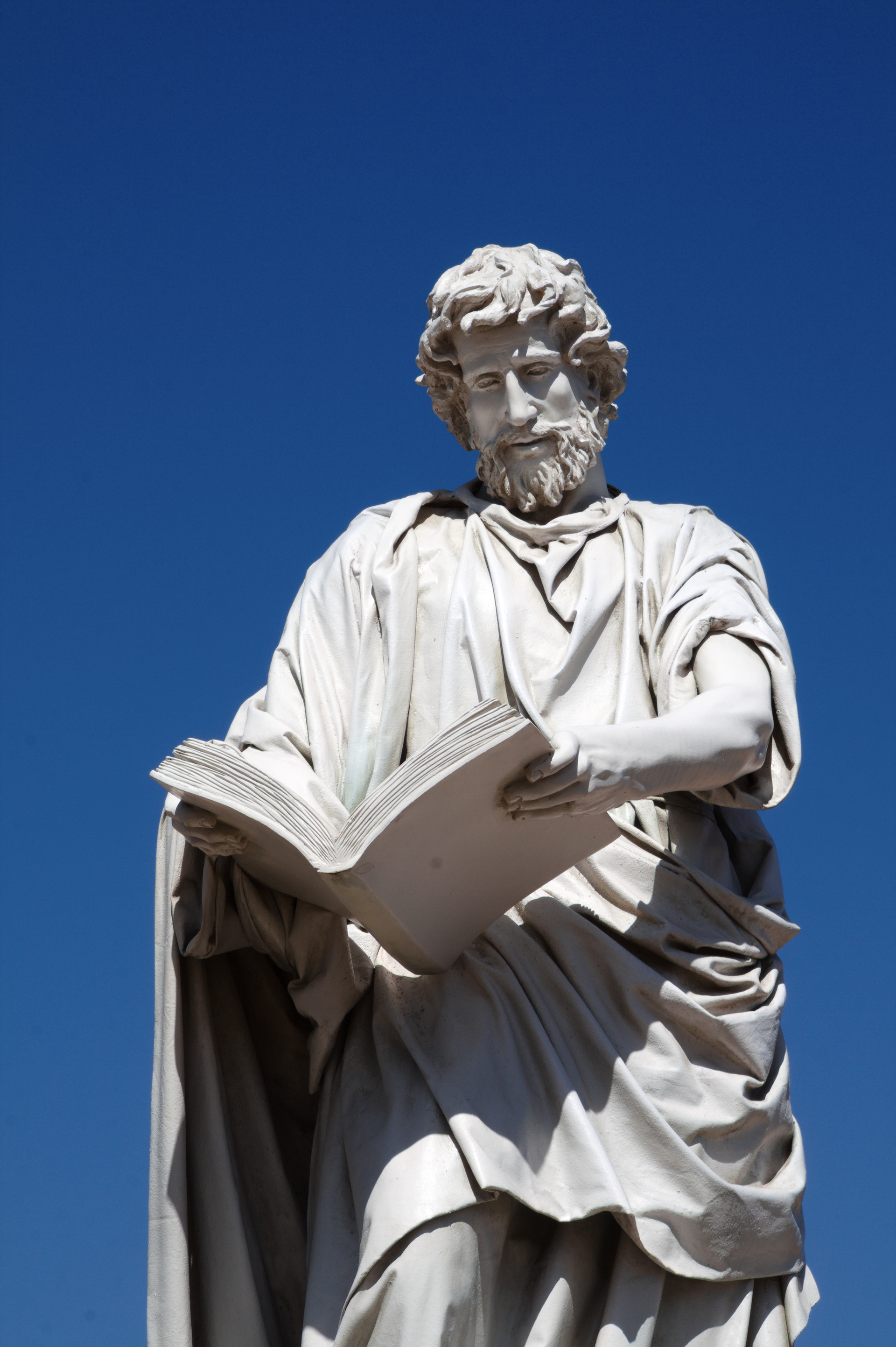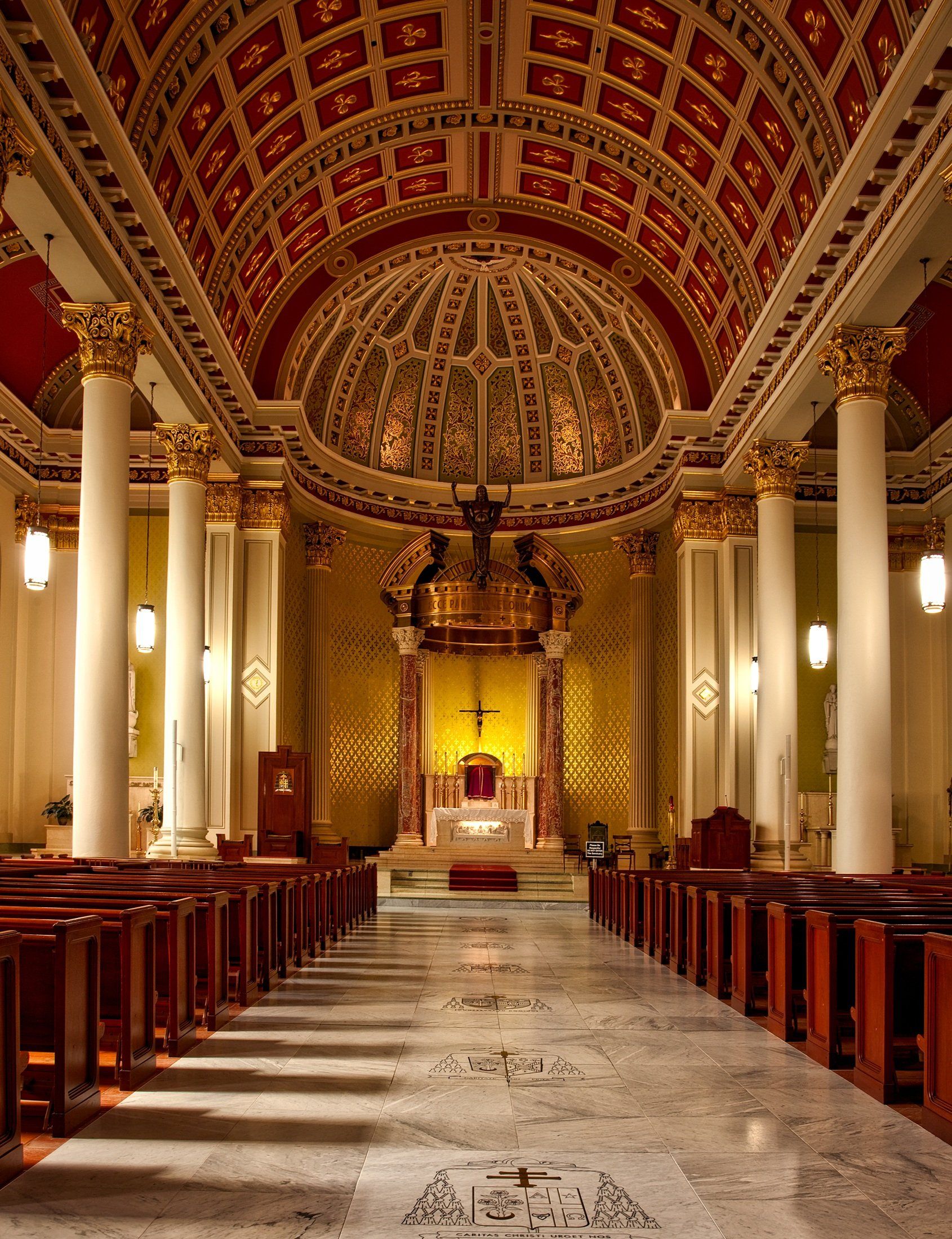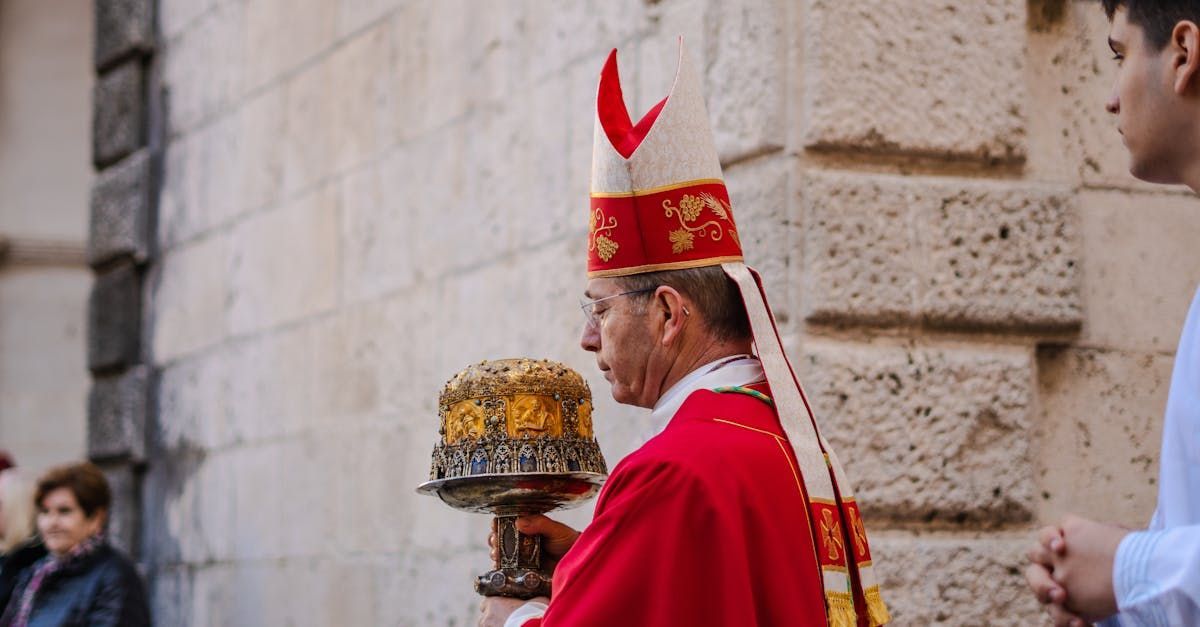Tiempo de Cumplimiento; Reino de Dios; Arrepentirse
Nuestra triple observancia de la Cuaresma corresponde al triple mandato de Cristo de responder a la Buena Nueva.
Queridos hermanos, hemos entrado en el ayuno solemne de la Cuaresma. Después de habernos reunido el miércoles y recibir la ceniza bendita sobre nuestras cabezas, entramos en un tiempo de oración, ayuno y limosna. En términos de oración, elevamos intencionalmente nuestra mente y nuestro corazón al Dios que nos creó. Como lo vemos evidenciado en nuestra primera lectura del Génesis, incluso cuando el hombre se descarría, Dios ha prometido que nos presentará oportunidades para traernos de regreso, en lugar de matarnos. Así es como Él nos ama. Una y otra vez, cuando amenaza mal tiempo, el arco iris nos recuerda su compasión duradera.
En términos de ayuno, nos alejamos de la comida y bebida que tan a menudo nos hacen pecar. Cuando hacemos sacrificios voluntarios de aquellas cosas que nos distraen de él, vivimos nuestras vidas de manera más simple y confiamos más firmemente en la providencia de Dios que en nuestras propias fuerzas.
En términos de dar limosna, nos despojamos más intensamente de las posesiones y del dinero, utilizando lo que hemos ganado como una manera de levantar a los pobres y necesitados.
Estas tres prácticas juntas (oración, ayuno y limosna) son, entonces, una forma de renovar nuestro corazón y dejar de desviarnos que se produce a lo largo del año.
No entramos solos en estas prácticas. Sí, tenemos a todos los miembros de la Iglesia. Pero también reconocemos a la persona más importante que ha merecido que obtengamos fructíferamente gracias espirituales durante nuestros cuarenta días: Cristo mismo. Cuando Cristo entró en el desierto y enfrentó las tentaciones, lo tomamos como nuestro modelo para resistir la obra de Satanás en nuestra vida. Hay dos efectos principales que las tentaciones de Cristo tienen para nosotros. Primero, mediante su propio ayuno en el desierto, ha establecido un patrón para nuestras propias prácticas de Cuaresma y las hace fructíferas por su gracia. Al resistir las artimañas de Satanás, él nos ha ganado fuerzas para luchar contra las tentaciones.
Marcos nos dice que, inmediatamente después de los cuarenta días de Cristo en el desierto, va a Galilea a predicar: "Se ha cumplido el tiempo y el Reino de Dios ya está cerca. Arrepiéntanse y crean en el Evangelio". Un mensaje simple, pero lleno de poder.
"Se ha cumplido el tiempo". Con la venida de Cristo, es el momento en que Dios se revela plenamente al hombre, pero también le revela al hombre quién debe ser. Vemos en Cristo la imagen del hombre plenamente vivo. Sólo podemos imitarlo pasando por este período de purificación e iluminación.
"El Reino de Dios ya está cerca". El reino de Dios en el evangelio de Marcos indica la presencia de Cristo. Nuestras vidas extienden el reino de Dios y sus efectos siempre que permanezcamos espiritualmente en la presencia de Dios. No podemos permanecer en la presencia de Dios realizando actividades y posesiones que sean contrarias a la vida cristiana. Por eso, pasando por este tiempo de purificación y penitencia, nos despojamos de nuestra vida los hábitos contrarios a la virtud. El resultado es que la paz de Dios habita más plenamente en nuestras vidas de tal manera que su reino está más cerca.
"Arrepiéntanse y crean en el Evangelio". Evangelio, en griego, significa "buenas noticias". Al alejarnos del vicio, podemos aceptar la buena noticia de que esta vida no es todo lo que hay en nuestra existencia. A lo largo de milenios la enseñanza de la Iglesia se ha resumido de esta manera: "Mi propósito en la vida es conocer, amar y servir a Dios en esta vida, para poder ser feliz con él en la otra vida". El arrepentimiento y la fe es la práctica de apartar frecuentemente la vista de este mundo y de sus bienes terrenales, y fijar nuestra atención en la gloria celestial prometida a quienes obedecen la voluntad de Dios.
La Cuaresma es un tiempo especial donde vemos la utilidad del sufrimiento con miras a la redención. No es masoquismo. Es un modo de ser probado en el fuego, purificado en el crisol. Lo que sale del otro lado es un guerrero dispuesto a perseverar a través de cualquier dificultad para ganar la corona de la vida eterna.
Pastor's Ponderings












